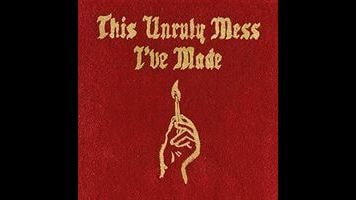Clumsy messages hurt what could have been a great album from Macklemore

Few celebrities exemplify the phenomenon of backlash quite like Macklemore. When The Heist was released in fall 2012, Macklemore was hailed as an indie rapper who found mainstream success without giving in to major label hierarchy, and praised for advocating for marriage equality on “Same Love.” But by January 2014, when he inexplicably beat Kendrick Lamar, Kanye West, Drake, and Jay Z for Best Rap Album at the Grammys, the tides had turned considerably. Macklemore’s success is now viewed as a mere product of his whiteness, and people have come to wonder if “Same Love” was more of a cynical ploy to gain fans in the LGBT community than a true show of support. But in the two years since Macklemore’s Grammy victory, he’s been working on a potentially career-altering followup. The result? An often-entertaining album that will change absolutely no one’s opinion of him.
From the beginning, listeners are reminded that the “& Ryan Lewis” portion of this duo may be underbilled. Like many tracks on The Heist, opener “Light Tunnels” is aided immensely by Lewis’ vibrant production, as the six-and-a-half minute account of Macklemore’s life since becoming famous is given extra grandiosity thanks to his flourishes. Lewis also does an able job providing musical backing to the more somber “St. Ides,” in which Macklemore considers the more serious ramifications of his fame, while also nodding to his past struggles with alcoholism.
While the introspective moments are intriguing, This Unruly Mess I’ve Made is at its best when Macklemore lets his sense of humor shine through. “Downtown” won over some of his more intense haters because it’s simply about having fun. Somehow, when Macklemore is rapping with Kool Moe Dee, Melle Mel, and Grandmaster Caz are about how enjoyable mopeds are, his place within our culture no longer seems like a big deal, and we can just enjoy ourselves. The same proves true for “Let’s Eat,” a light-hearted number about Macklemore struggling to go on a diet, and “Dance Off,” a likely single that features a surprise cameo from Idris Elba. When Macklemore is having fun, he’s as charismatic as any rapper around.

 Keep scrolling for more great stories from A.V. Club.
Keep scrolling for more great stories from A.V. Club.